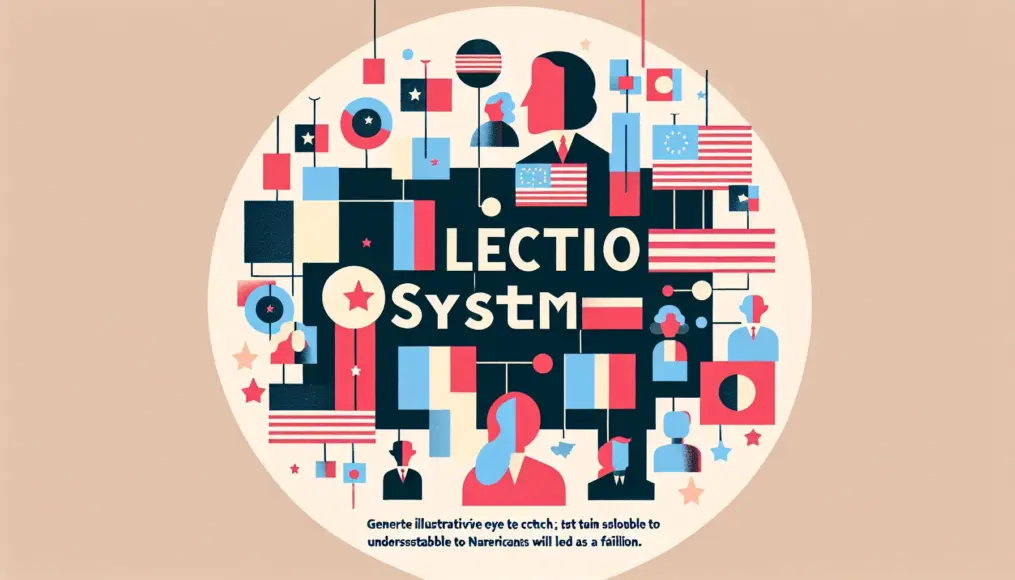Have you ever heard the term “national strategy”? Delving into this topic reveals that it is closely tied to issues that significantly impact our lives and future. By understanding how countries formulate and implement strategies, we can broaden our perspective and gain insights into future political landscapes and international relations.
In this article, we will cover the fundamental concepts of national strategy, examine lessons learned from past successes and failures, and analyze contemporary strategies employed by various nations, including Japan. Together, we’ll explore how national strategies influence our daily lives.
- Learn about the definition and importance of national strategy
- Reflect on lessons from past successes and failures
- Analyze modern national strategies from other countries and Japan to anticipate the future
What is National Strategy?
National strategy refers to the plans and policies that a country implements to achieve its goals. This encompasses various aspects, including economic development, diplomacy, and security, all of which significantly impact the nation’s survival and growth. Understanding national strategy is crucial for us to comprehend international dynamics and domestic issues. By learning how a country formulates and executes its strategy, we can make more informed decisions ourselves.
Defining National Strategy
The term “national strategy” indicates the means and plans a country uses to tackle its challenges and achieve its objectives. It’s not merely a collection of policies; it requires a long-term perspective focused on the nation’s future. This includes strategies aimed at promoting economic growth and enhancing international competitiveness. Since these strategies directly influence citizens’ lives, they are a topic of considerable interest to us.
When developing a national strategy, it is essential to consider both domestic and international circumstances, as well as global relations. This approach allows for the formulation of more effective policies. National leaders must continuously adapt to changing environments and drive necessary reforms.
- National strategy consists of plans to achieve national goals.
- It includes a wide range of aspects such as economy, diplomacy, and security.
- Strategic thinking is a vital element for envisioning the nation’s future.
The Importance of Strategic Thinking
Strategic thinking is an indispensable component for the success of national strategy. It involves analyzing problems and identifying optimal solutions, as well as gathering information to make informed decisions. National leaders must leverage strategic thinking to comprehend complex situations and make swift and appropriate choices.
Moreover, strategic thinking equips leaders with the ability to respond flexibly to changes both domestically and internationally. For instance, even in times of global instability, having a solid strategy in place can ensure national security. Thus, strategic thinking can be seen as a crucial skill that contributes to the sustainable development of a nation.

If you’re interested in this topic, you might also enjoy reading “A Deep Dive into Government Measures Addressing Declining Birth Rates: Realities and Challenges from Personal Experiences.” This article provides a deeper understanding of the current situation and challenges surrounding the declining birth rate through government initiatives and real-life testimonials.
- Strategic thinking is a vital process for problem-solving.
- It nurtures the ability to gather information and make appropriate judgments.
- It’s a skill necessary for adapting flexibly to changes both domestically and internationally.
Learning from History: National Strategy
When devising a national strategy, it’s crucial to learn from history. Both successful examples and lessons from failures provide valuable insights for contemporary politics and international relations. By reflecting on the past, we can identify which strategies were effective and where pitfalls lay, allowing us to better shape future national strategies. In this section, we’ll explore the importance of national strategy through historical successes and the lessons learned from failures.
Historical Successes
Looking back at past successes, many nations have established their economic growth and international standing through specific strategies. Take post-war Japan, for instance. With support from the United States, Japan successfully revitalized its economy and experienced rapid growth. During this period, a focus on enhancing education and technological capabilities was paramount, uniting the populace in nurturing new industries.
Another notable success is Singapore. The small city-state cleverly turned its limited size and resources into an advantage by prioritizing knowledge-based industries and finance. This strategic approach allowed Singapore to establish itself as a global business hub, significantly boosting its economy. These success stories underscore the importance of having a clear vision.
- Japan’s post-war recovery is a prime example of a successful strategy centered on education and technology.
- Singapore grew into an international hub by focusing on knowledge industries.
- Clear vision and strategy are key components of success.
Lessons from Failures
On the flip side, failures are also part of national strategy. History is rife with examples of miscalculations and overconfidence leading to disastrous outcomes. The Soviet Union’s economic planning, for instance, initially appeared promising but ultimately faltered due to inefficient resource allocation and central control, which stifled sustainable growth and led to economic collapse.
Similarly, the Vietnam War serves as a critical lesson for the United States. Despite deploying a powerful military strategy, the U.S. failed to understand the local culture and social dynamics, resulting in significant casualties and a costly conflict. These failures illustrate the need for thorough understanding and flexible responses when formulating strategies.
- The Soviet economic plan failed due to inefficient resource allocation.
- The Vietnam War highlighted the issues stemming from ignoring local cultures and social conditions.
- Learning from failures is key to building better national strategies.
Examples of National Strategies in Modern Society
In today’s world, national strategies are being shaped by different countries according to their unique circumstances. As international competition intensifies, nations are seeking out their own strategies to maximize their interests. This article will analyze the strategies of other countries while also considering the current state and challenges faced by Japan. By doing so, we aim to highlight the significance of national strategies in modern society and provide insights into future directions.
Analysis of Other Countries’ Strategies
For instance, the United States has developed a national strategy that leverages technology and innovation. Centered around Silicon Valley, a vibrant ecosystem of startups is emerging, continually producing groundbreaking technologies. This environment is a crucial factor in supporting the nation’s economic growth, allowing the U.S. to maintain its competitive edge on the global stage.
China, on the other hand, has its own distinctive strategy. Through its “Belt and Road Initiative,” China aims to strengthen economic ties with Asia and Europe. This project seeks to enhance international influence by promoting infrastructure development and trade. These strategies serve as compelling examples of how different countries are striving for national development.
- The U.S. employs a national strategy based on technology
- China expands its international influence through the “Belt and Road Initiative”
- Exploring keys to success amid diverse national strategies
Japan’s Current Situation and Challenges
Conversely, Japan faces several challenges in its national strategy. With an aging population and declining birth rates, there is an urgent need for strategies that can achieve sustainable economic growth. In particular, ensuring a stable workforce and promoting technological innovation have become pressing priorities.
Recently, initiatives focusing on digitalization and green energy have gained attention as part of Japan’s national strategy. While these efforts hold promise for creating new industries and addressing environmental issues, it is undeniable that many barriers to implementation exist. Overcoming these challenges and establishing a clear vision for the future will be crucial for Japan moving forward.
- Japan is grappling with an aging society and declining birth rates
- Digitalization and green energy initiatives are part of the national strategy
- Having a clear vision is key to addressing Japan’s challenges
Habits and Mindsets that Support National Strategy
To achieve success in national strategy, it’s essential to cultivate solid habits and mindsets. These elements not only influence the formulation of strategies but also play a significant role in their execution and improvement. Fostering strategic thinking and maintaining a commitment to continuous learning are crucial for not just national leaders but for each of us. Let’s explore how we can develop these habits for the future.
Cultivating Strategic Thinking Habits
Building strategic thinking starts with creating a habit of conscious reflection in our daily lives. Instead of simply consuming news and information, it’s important to consider the context and implications behind them. Having your own opinions and engaging in discussions with others allows you to incorporate diverse perspectives. Moreover, contemplating approaches to problem-solving naturally nurtures strategic thinking.
Setting goals and developing plans to achieve them is equally important. By starting with small objectives and gradually tackling larger ones, you’ll gain the confidence needed to practice strategic thinking effectively. These habits will also translate into valuable skills in your everyday life.
- Developing a habit of daily reflection fosters strategic thinking
- Consider the context and implications of news, and form your own opinions
- Build confidence by setting small goals and creating plans
The Importance of Continuous Learning
National strategies must adapt to changing environments and circumstances. Therefore, a commitment to continuous learning is essential. By integrating new knowledge and skills, you can respond to the evolving landscape and devise effective strategies. Particularly in areas like international relations and economic trends, staying updated is crucial.
Additionally, learning contributes to personal growth. Acquiring new knowledge broadens your horizons and enhances your ability to think flexibly. This flexibility is vital when considering national strategies. By improving yourself, you increase the potential to contribute positively to the future of your nation.
- A commitment to continuous learning is key in adapting to changing circumstances
- Integrating new knowledge allows for the development of effective strategies
- Learning fosters personal growth and cultivates flexible thinking
Conclusion
National strategy is a crucial plan that looks ahead to the future of a country, and its understanding is deeply intertwined with our daily lives. By learning from historical successes and failures, we can truly appreciate the importance of national strategy in modern society. Moreover, cultivating habits of strategic thinking and maintaining a mindset of continuous learning are essential keys for each of us to contribute to the nation’s development.
As we move forward, it’s important to adapt flexibly to changes in national strategy while continuing to grow ourselves. By forming our own opinions and absorbing new knowledge, we can collaboratively build a better future.
- National strategy is a crucial plan aimed at the future of the country.
- Learning from past successes and failures is important.
- Cultivating strategic thinking habits and continuous learning are key.
How about using this knowledge to reflect on national strategy yourself? We’d love to hear your thoughts and feedback in the comments!



Comment